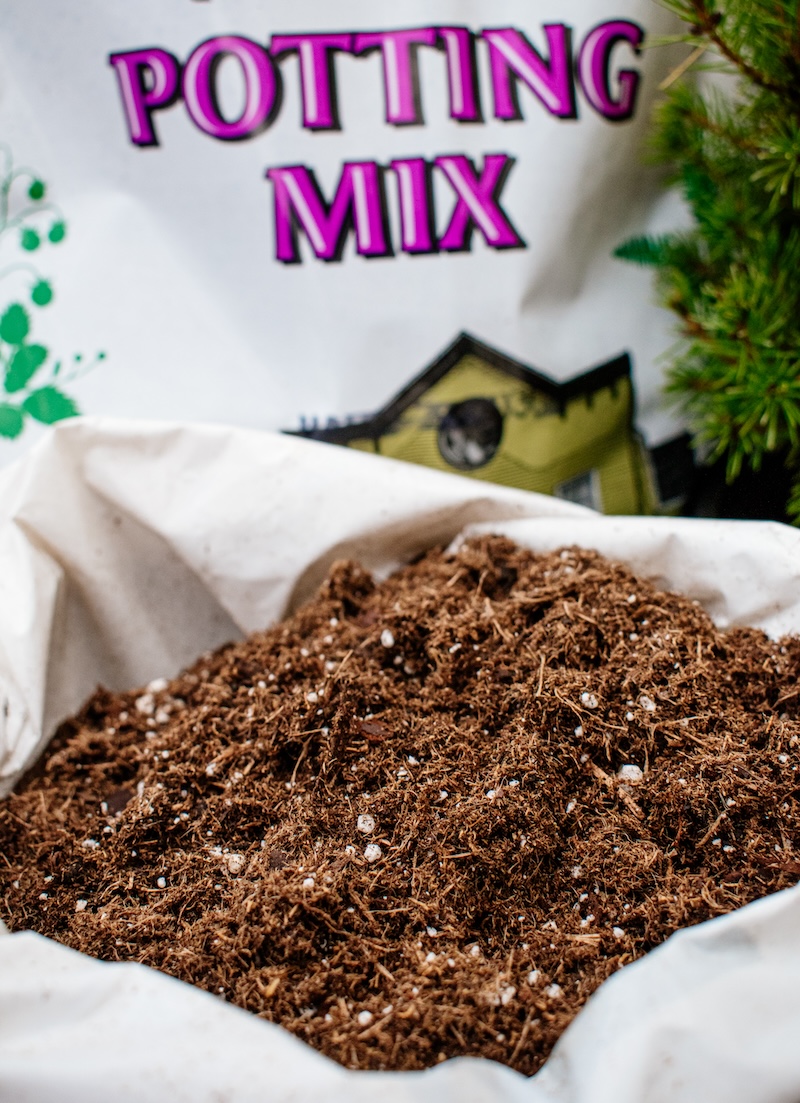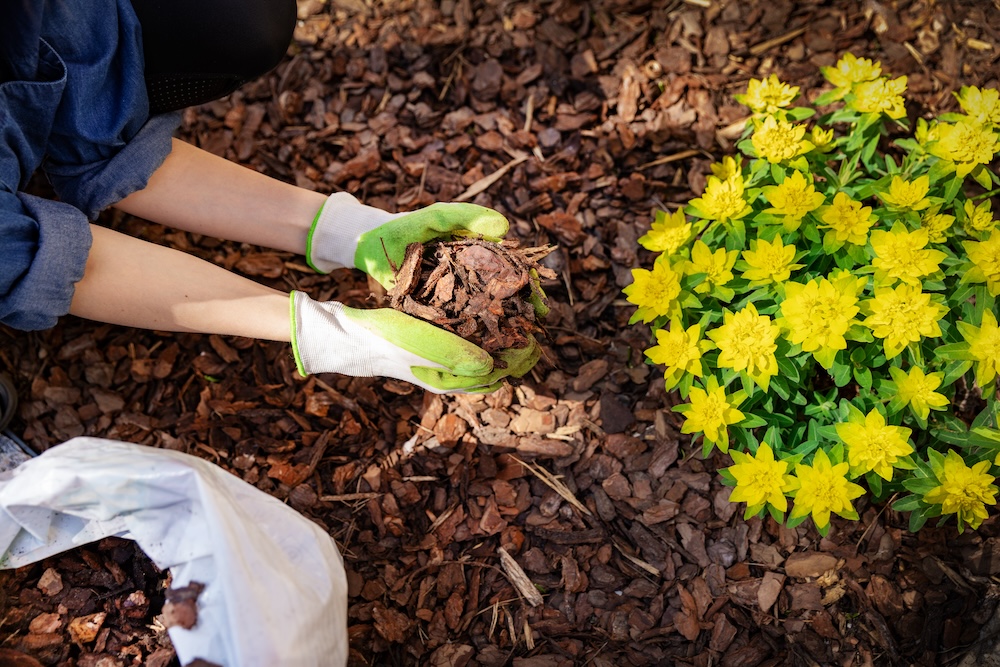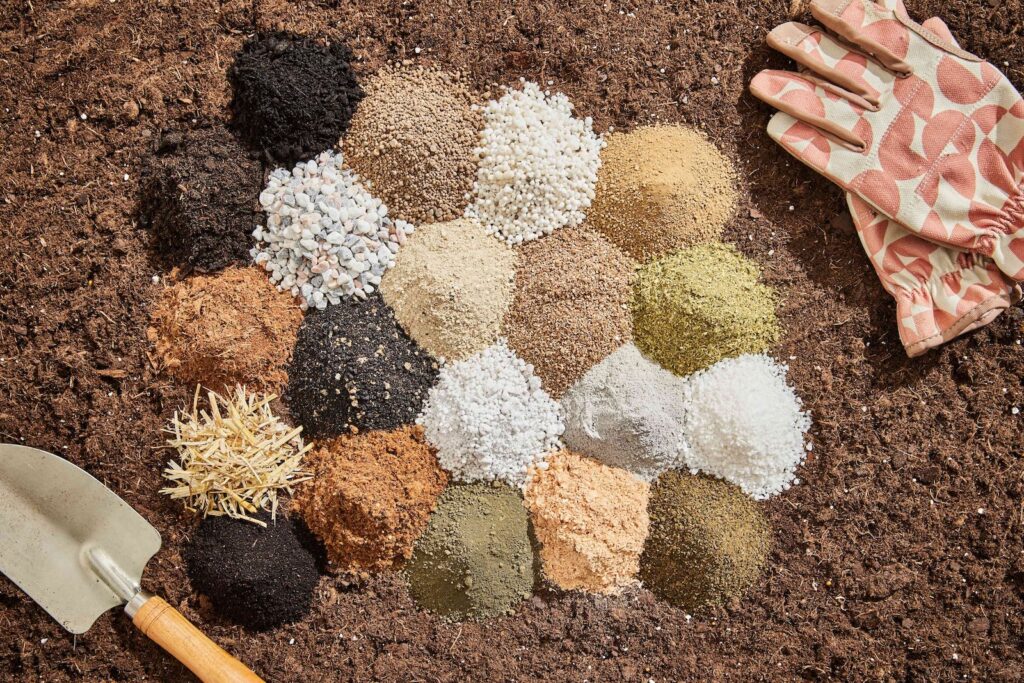Soil, Mulches, and Amendments
We offer a wide array of soils, planting mixes, and fertilizers suitable for all of your indoor and outdoor gardening needs. Please call us for large order inquiries. Delivery is available.
Need help deciding what’s right for your situation? Call us or check out our Quick Start Guide.
Table of Contents
- Soils
- Mulches
- Soil Amendments
Soils
Choosing the right soil can be intimidating–we’re here to help!
Container Planting
Potting soils are lighter, well-draining, and often pre-fertilized.
Indoor soil we carry:
- Gethsemane’s house blend potting mix
- Baccto Lite potting mix
- Specialized soil mixes (e.g. cactus/succulent, orchid, violet, etc)
Outdoor soil we carry:
- Gethsemane’s house blend potting mix
- Baccto lite potting mix
- Purple Cow potting mix
- Baccto Veggie mix
In-ground Planting
Soil meant for the ground tends to be denser and controls plant roots.
Garden Soil: Heavier and denser than potting mix, garden soil controls plant roots and contains beneficial microbes and bacteria.
Topsoil is made up of a combo of sand, silt, and clay that has less nutritional value. Typical uses include:
- increasing overall soil volume
- filling in gaps
- for top dressing
- lawns

Mulches
Mulches have a few purposes – they help to retain moisture, control weeds, and provide an attractive finish to your garden. Organic mulches, like bark or straw, can also improve soil health as they decompose, adding nutrients and improving structure. In colder climates like Chicago, mulches protect plant roots from temperature fluctuations and frost.
Mulches we carry:
- black forest fine mulch
- hardwood mulch

Soil Amendments
Amendments are substances that you can add to your soil to improve its overall quality and nutrient level, or to make the growing environment more ideal for a particular plant.
Two common amendments are composts and fertilizers. They both add nutrients back to the soil, but have different applications.
So, what’s the difference?

Various soil amendments; photo courtesy of The Spruce
Compost
- soil enrichment that can improve the texture and quality of poor soils
- made up of broken down organic matter
- can be thought of as “whole foods” that provide nutrition overall the long term
Fertilizer
- provides a direct supply of nutrition
- can be synthetic or natural
- requires caution for use, over-fertilization can burn plants
- can be thought of as plant “vitamins” that provide a concentrated boost of nutrition
Other amendments
Depending on your particular garden situation, you may need to use another kind of amendment to change the pH, improve soil structure, or balance the nutrients of your soil.
Coconut coir:
A natural, sustainable byproduct of coconut husks, coconut coir is used to improve soil structure. It helps retain moisture while promoting good drainage and aeration, making it an excellent addition to potting mixes or garden beds.
Blood meal:
A high-nitrogen organic fertilizer made from dried animal blood. It’s used to boost nitrogen levels in the soil, encouraging lush, green foliage. It’s especially beneficial for leafy greens and plants in need of a quick nitrogen fix.
Lime:
Used to raise soil pH, making acidic soils more alkaline. It improves nutrient availability for plants and is especially useful in regions with acidic soil or when growing plants that prefer neutral to alkaline conditions.
Vermiculite:
A mineral that expands when heated, creating a lightweight, absorbent material. It improves soil aeration and water retention, helping to keep soil moist without becoming compacted, and is ideal for seed starting or container gardening.
Bone meal:
Bone meal is a slow-release fertilizer made from ground animal bones, rich in phosphorus and calcium. It supports root development, flowering, and fruiting, making it perfect for flowering plants and root vegetables like carrots and beets.